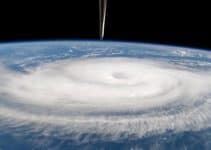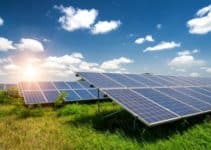With the advent of UN climate talks in Katowice, Poland or COP24, the whole world is looking up to the global community to revamp their policies and putting the genuine effort towards achieving the goal of Paris Agreement 2015 on climate change. No wonder it is the right time to bring the world back on track to meet the warming targets of 2C and 1.5C respectively.
In this crucial period, the World Bank Group announced that it would double its investments of current 5-year, i.e., 2021-2025 to around $200 billion to support countries to boost the ambitious climate action. The objective behind this move is to extend support to fight severe impacts of climate change on lives and livelihoods of the world’s poorest countries including adaptation and resilience of the victims of the climate change.
World Bank Group President, Jim Yong Kim said this is the fight of the world’s poorest and most vulnerable against the climate for existence. The organization is taking the issue very seriously and set this new target of investing $200 billion and mobilizing the fund over the five years to tackle the climate change.
They are pushing themselves to do something fast on climate change and also giving the signal to the countries and communities in charge, to act quickly making future safer and climate-resilient for all. The group expects that global community also take the matter that seriously.
Out of the proposed $200 billion, World Bank (IBRD/IDA) financed $100 billion (approx.) directly and the other $100 billion (approx.) from the IFC, MIGA and private capital.
It is now a priority to boost support for climate adaptation to millions of peoples facing the deadly consequences of climate catastrophe. For the first time, the World Bank emphasized adaptation urgency equally with the measures to reduce emission and ramp up finance around $ 50 billion over five years from 2021-2025.
World Bank Chief Executive Officer, Kristalina Georgieva said that climate change and its disastrous effect are desperately causing loss of lives and livelihoods. Besides fighting for the cause, adapting the consequences is also essential as it is tough for the world’s poorest people to tackle. For this very reason, World Bank commits to raise climate finance to $100 billion and invest half of it in better-adapted homes, infrastructure and schools, sustainable water management system, climate-smart agriculture, and effective social safety nets.
With this new financing policy, the World Bank will ensure a systematic adaptation policy with the adoption of a new rating system for tracking global process and incentivizing the same. For ensuring 250 million people in 30 developing countries are fully aware and ready for the climate risks, its climate actions will support higher-quality forecasts on weather with early warning systems and other climate information services.
Other than these, they will build advanced climate-responsive social protection systems in forty countries and finance the climate-smart agriculture investments in another twenty countries.
IFC CEO Philippe Le Houérou said that trillions of dollars of opportunities are now open for the private sector to grab with a proactive approach that will result in saving the planet. They will help with finance in green buildings, renewable energy, water, urban transportation, climate-smart agricultural business, and urban waste management.
The key sectors under the purview are:
Energy: Support 36 GW of renewable energy generation, integration and providing infrastructure and saving 1.5 million GW equivalent of energy by efficiency improvement.
Cities: Help achieving low-carbon and resilient urban planning in 100 cities and transit-oriented development.
Food and Land: Support the increasing integrated landscape management in up to 50 countries, along with covering up to 120 million hectares of forests.
This year there is record-breaking finance for climate action of $20.5 billion from World Bank Group and also records $7.7 billion in adaptation project like solar water pump for Nabeina village in the low-lying island republic of Kiribati. Kiribati is under climate risk by saltwater intrusion due to rising sea levels.
Therefore, it is high time that we must act now and come together to fight climate change and save the world.






